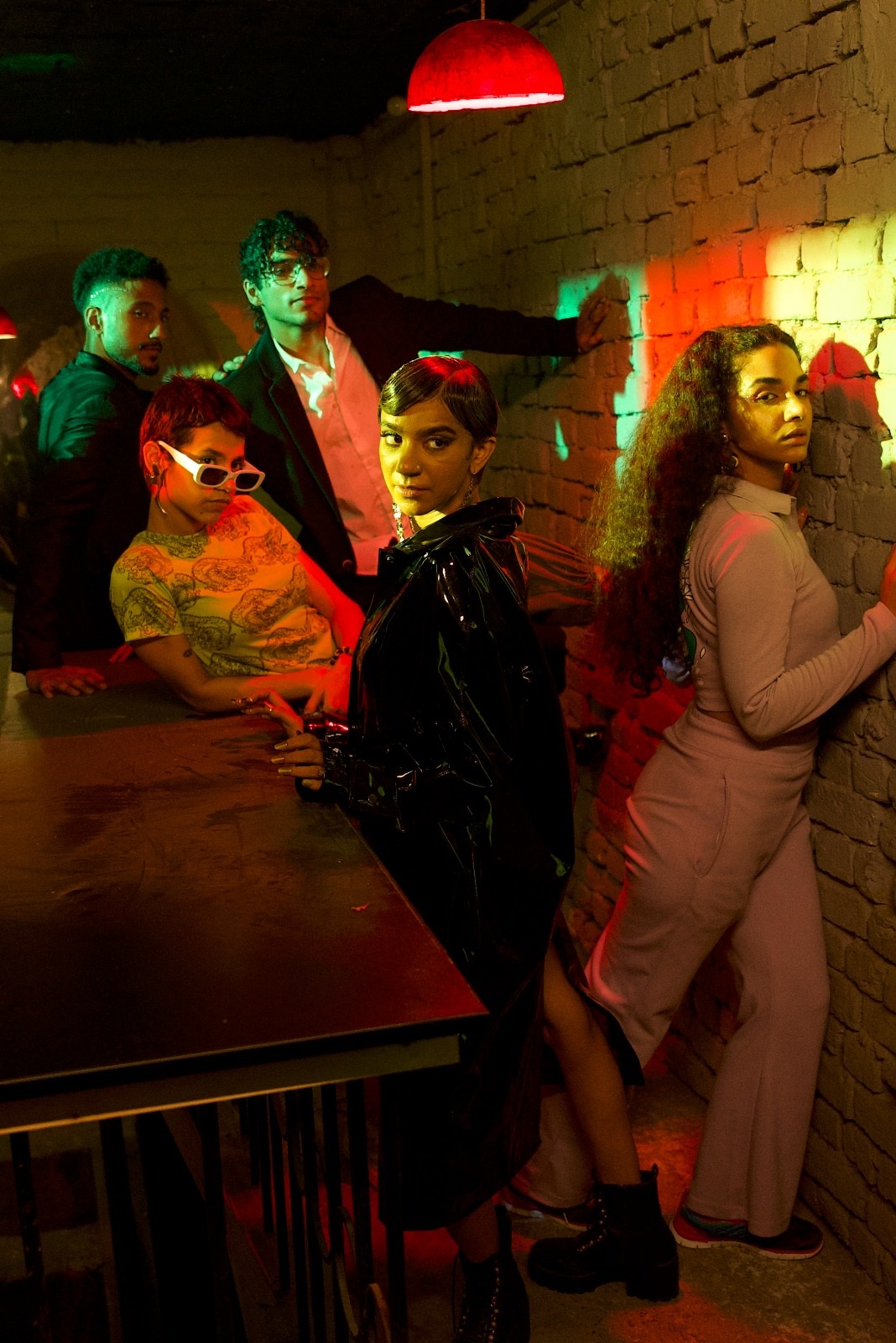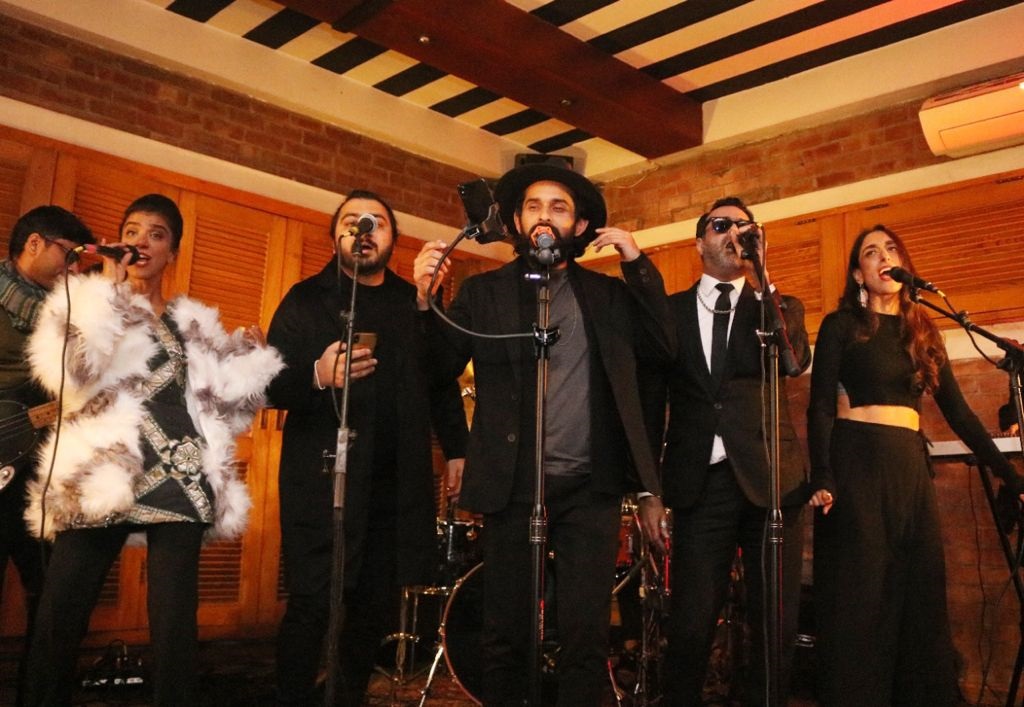
Written by: Haroon Shuaib
Posted on: September 25, 2023 |  | 中文
| 中文
Natasha Ejaz during a live performance
Islamabad based vocalist, actor, song writer, sound engineer and music producer, Natasha Humera Ejaz is all of that and more. One thing she obviously dislikes is being stagnant and getting boxed. The music she generates is as wide ranging as the various hats she wears. She has dabbled with many music forms and admits to having various influences on her music, from pop to the Indian subcontinent’s classical traditions and, of course, western music.
The artists whom Natasha lists as having influenced her include Norah Jones, Joan Baez, Bob Dylan, Eva Cassidy, CSNY, Bjork, Alanis Morissette, Tory Amos, Imogen Heap, MGMT, Vital Signs, Awaz, Junoon, Abida Parveen, Nayyara Noor, Noor Jehan, Nusrat Fateh Ali Khan, A R Rehman and Geeta Dutt. This diverse spectrum says a great deal about how planetary her own sound is. With a certification in audio production from the International College of Music Kuala Lumpur, Natasha started dabbling with music when she was barely three years old. “It has been the performing arts for me since I was a child. I was one of those kids that make a lot of noise. My mother was a painter and part of the local art community. I was very young when she took me to Pakistan Television (PTV). After that I just didn’t do anything else with my life,” Natasha recalls.
Natasha had a really supportive mother and was always ready to enroll when sporadic music classes were organized at the Pakistan National Council of Arts. “I had a natural flair. A family friend got me a guitar, and I started tinkering with it. My Urdu tutor was also a guitar player, and he started bringing his guitar to our lessons. I would get a lesson of guitar from him after my Urdu class. Internet had just become accessible, so I started looking online for the chords of my favorite songs. Soon enough I was playing with the same melodies and making my own songs.” She followed it up with lessons from the great Ustad Fateh Ali Khan and continued applying for grants, one of which took her to Malaysia where she did her Foundation in Music and got a Certificate in Audio Production. “I continued applying for different residency programs and did a Choir Residency Program in China, then a two-month DJ and Club Culture residency in Berlin, and became part of the Dosti Music Project, which was a collaboration between India, Pakistan and the U.S. I have recently been learning classical eastern singing from Aizaz Sohail,” Natasha recounts. She feels that learning classical eastern singing is important for her as she is producing a lot of music for local films, and it is also giving her a greater appreciation for the golden era Pakistani and Indian music influences that she grew up listening during her formative years.
Natasha is a strong believer that learning is an ongoing process. While she was learning music academically, she was also dabbling in musical theatre productions staged in Islamabad. She recorded her first ever song, ‘Today is a Place’, in 2011. That same year she produced a single for Uth Records. She collaborated with her music teacher at college, Rishabh Rajan, to produce four songs as an extended play (EP) titled, ‘It Might Get Glitchy’. Natasha counts that as her first significant work as a song writer and producer. “Later I did my first solo EP while I was in Karachi, and was part of a band. It was called, ‘Till the End of Time’. That became really popular and people still request for its songs at my concerts.” Following her constant urge to explore new dimensions for her creative range, she was also collaborating as an engineer, vocalist and song writer with other artists and music producers in Karachi. In 2019 she lost her mother. Her music helped her process this personal loss.

Natasha is joined by The Colony dancers Manal, Waseem, Faizan and Hira on the making of the official music video for 'Khud Se Batein'
Most recently, in August 2023, Natasha launched a new album called ‘Ordinary Miracles – Heeray Moti (Diamonds and Pearls)’ in collaboration with Rishabh Rajan. Natasha and Rishabh have co-produced the album, which is an eclectic musical mix. “Ordinary Miracles is an album exploring pop, dance and folk music as it stands today in my experience. While Rishabh and I produced it, various artists have collaborated with me on the record itself, including Maria Fajardo from Spain, Slowspin, Nimra Gilani, Danish Khawaja and Zeeshan Ali from Pakistan, Mirande Shah from India, Moa Edmunds Guevara from Chille, Amazumi from Nepal, Samuel Sjostedt from Armenia, Yun Chen Tsai from China and Maho Azuma from Japan”. Natasha and Rishabh, the latter is based in the U.S., started working on Ordinary Miracles back in January 2022. The contributions from around the world have really added a multicultural vibe to the record. “Rishabh and I were both Bjork and Imogen Heap fans, and he expressed interest in blending that vibe with Urdu lyrics as a personal whim, and I got down to writing it. It developed very organically, and while the sound of the album is eclectic-pop, the themes explored are of love, loss, joy, strength and life as an emotional rollercoaster. There are a lot of twists and turns, some troughs, some rises, but the album decidedly finishes on a quieter and more thoughtful note. That is what I was hoping to accomplish and I had some great help along the way. I think there's at least one song for everyone on this record,” she adds.

Natasha, Shorbanoor, Jimmy Khan, Kamiyar Rokni and Zahra Khan enthrall Lahore at 'Alive & Kicking' (Cosa Nostra)
Natasha feels that taking on additional roles of writing lyrics, sound recording and engineering, actually helps her creative expression as a vocalist and producer. It is the packaging and marketing of her own music that she finds most challenging. She has released Ordinary Miracles under her own label. As a recordist and sound engineer, she views the technological advancements in sound production favorably. “If technology is making it possible for anyone to sing then that is great. If anyone feels they can sing and want to, then by all means they should go ahead and do it. I think every human being brings something special to this planet, and that is why I titled the album ‘Ordinary Miracles’. We are all just little pieces of a much larger puzzle. I do, however, think that no matter how many short cuts somebody takes, at the end of it there will be a limitation on the person from within. I couldn’t sleep in peace for the years when I felt that my singing was not up to par with my own standards. I know that when people attend my shows, they feel that their emotions are being expressed through my music,” she adds.
According to Natasha, practice is essential for becoming an accomplished singer, and her appreciation for the great maestro vocalists has only increased. As an artist who self-funds everything she does, Natasha is hopeful that building on the rich legacy of folk and traditional music is the course music industry must adopt. “Pakistan’s folk music is truly unique, rich, ancient and widely appreciated abroad. It has its own distinct rhythms, scales and performance techniques. Most of the time our folk artists and instrument players perform where there are no mics, so they learn to project their voice loudly and organically. It is simply fascinating,” Natasha says. She believes that Pakistani music so far has been like her people: passionate, exciting, but sometimes misguided.
You may also like: